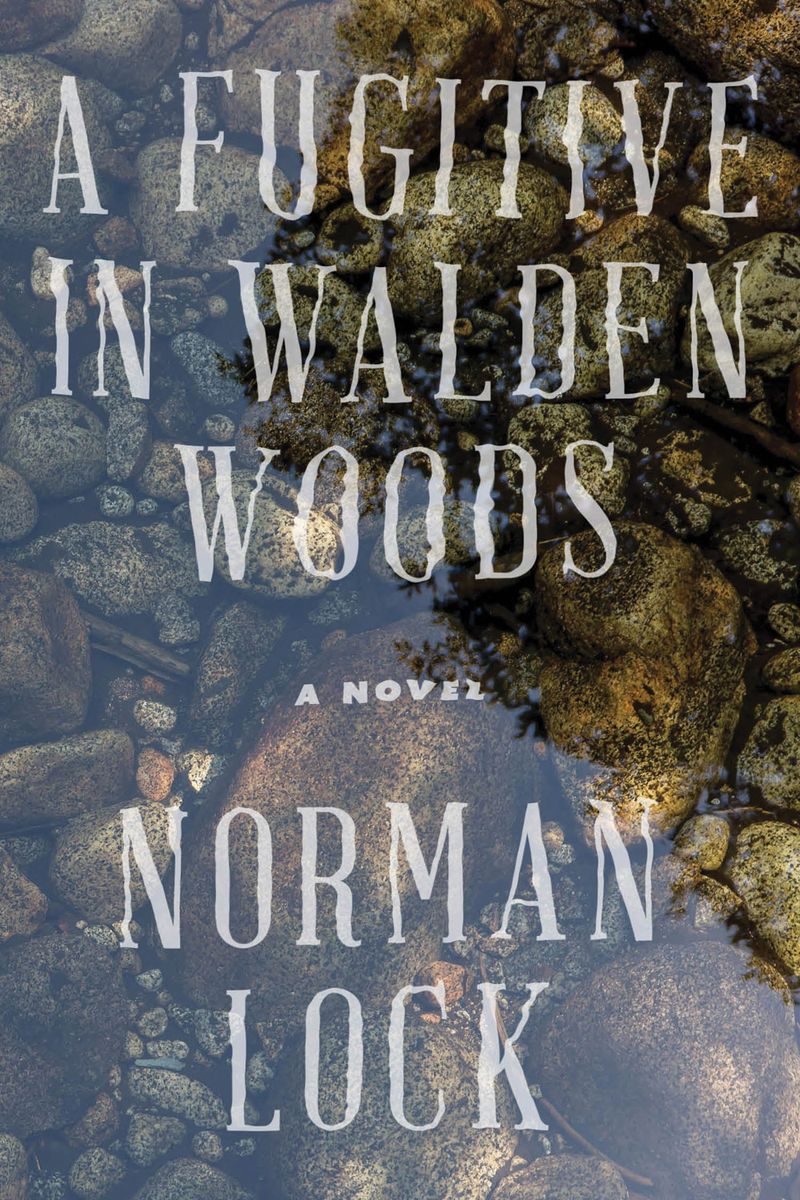A Fugitive in Walden Woods manages that special magic of making Thoreau’s time in Walden Woods seem fresh and surprising and necessary right now. Norman Lock tells the story of Samuel Long, an escaped slave who encounters Thoreau, with insight and some welcome humor. This is a patient and perceptive novel, a pleasure to read even as it grapples with issues that affect the United States to this day.
— Victor LaValle, author of The Changeling and Lone Women
A Fugitive in Walden Woods
In Norman Lock’s fourth stand-alone book of The American Novels series, Samuel Long escapes slavery in Virginia, traveling the Underground Railroad to Walden Woods where he encounters Henry David Thoreau, Ralph Waldo Emerson, Nathaniel Hawthorne, William Lloyd Garrison, and other transcendentalists and abolitionists. While Long will experience his coming-of-age at Walden Pond, his hosts will receive a lesson in human dignity, culminating in a climactic act of civil disobedience.
Against this historical backdrop, Lock’s powerful narrative examines issues that continue to divide the United States: racism, privilege, and what it means to be free in America.
B&N Reads “Must-Read Indie Novel” selection
Booklist “Best New Book” selection
Publishers Weekly “Pick of the Week” selection
Foreword Reviews “Book of the Day” selection
Big Other “Most Anticipated Small Press Book” selection
Chelmsford Public Library “Reading Room” selection

Paperback
- ISBN
- 9781942658221
Ebook
- ISBN
- 9781942658238
Norman Lock shares the story behind A Fugitive in Walden Woods with Snowflakes in a Blizzard.
Norman Lock is the award-winning author of the dozen volumes in The American Novels series, as well as other novels, short fiction, poetry, and stage and radio plays. He has won The Dactyl Foundation Literary Fiction Award, The Paris Review Aga Khan Prize for Fiction, and has been longlisted twice for the Joyce Carol Oates Prize. He has also received writing fellowships from the New Jersey State Council on the Arts, the Pennsylvania Council on the Arts, and the National Endowment for the Arts. He lives in Aberdeen, New Jersey.
visit author page »Praise for A Fugitive in Walden Woods
Portraying the traumatic psychological aftershock not of war but of slavery provides a convincing and complex narrative of new hardships faced by escaped slave Samuel Long in Norman Lock’s bold and enlightening novel A Fugitive in Walden Woods. It’s an important novel that creates a vivid social context for the masterpieces of such writers as Thoreau, Emerson, and Hawthorne and also offers valuable insights about our current conscious and unconscious racism.
— Sena Jeter Naslund, author of Ahab’s Wife and The Fountain of St. James Court; or, Portrait of the Artist as an Old Woman
Lock’s writing is smooth and precise, braiding the worldly and the spiritual together in a lucid, elegant balance. . . . The principal characters are brimming with desires, doubts, and hypocrisies, and are capable of generosity, small-mindedness, genius, and naïveté. They feel at once sharply captured and mysterious—like ordinary mortals who were capable of changing the world.
Lock’s novels all use a classic work of American literature as a leaping-off point. . . . His newest leverages Henry David Thoreau’s Walden in the story of Sam Long, an escaped slave who makes his way to New England in the 1840s, where he falls in with a group of abolitionist intellectuals, Thoreau among them. Long captures the distinct personalities of these famous thinkers with uncanny ease, and never loses sight of the gulf that yawns between Long and the people who supposedly regard him as an equal.
— B&N Reads
Demonstrates Lock’s uncanny ability to inhabit historical figures and meticulously capture the vernacular of the time like a transcendentalist ventriloquist. . . . The text interweaves dialogue known to be spoken or written by Thoreau, Emerson, and Hawthorne with that made up by Lock and attributed to these giants of American literature. Lock’s remarkable achievement is that the reader cannot tell the difference. The real power of the story, however, comes from Samuel, who more than holds his own among these geniuses. His experiences of brutality offer profound insights that sharpen our understanding of American history.
Powerful . . . both in keeping with the work of some of the literary figures invoked in its pages and in terms of larger questions of race and privilege in America. Precisely structured and abounding with memorable characters, this novel invokes the past while feeling decidedly relevant to contemporary issues and debates.
Norman Lock’s American Novels series engages creatively with nineteenth-century literary classics. In the fourth novel in the series, A Fugitive in Walden Woods, a runaway slave encounters Henry David Thoreau and his transcendentalist circle and ponders the meaning of physical and ideological freedom. . . . Having an ex-slave as narrator opens an unusual window into what seems like familiar history. At the same time, Lock’s is a fitting homage to Thoreau.
Lock has embarked on a fascinating intellectual and artistic endeavor: engaging key American writers from the 19th century through a series of speculative historical novels. . . . In his latest installment, the author examines the life and work of Henry David Thoreau. . . . There is no sermonizing here, just thought-provoking juxtapositions and conversations. Ultimately, what emerges is a unique and affectionate homage.

